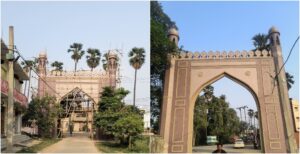
Patna : Bihar governor Arif Mohammad Khan has voiced support for reforms to Waqf property governance, asserting that such assets should benefit all needy people, regardless of religion. Speaking in Patna during an event marking the 118th birth anniversary of former deputy prime minister Jagjivan Ram, Khan backed the Waqf Amendment Bill recently passed by Parliament, calling it a step in the right direction.
“Waqf properties are considered to be owned by Allah,” he said. “They are meant for public welfare – for the poor and the needy. Not just Muslims, but non-Muslims also have rights to these properties.”
Arif Mohammad Khan, a former Union minister who recently completed his term as governor of Kerala, highlighted the lack of public welfare initiatives on Waqf-owned land in the Bihar capital. “There are many Waqf properties in Patna, but not a single hospital or orphanage has been set up,” he remarked. “Tell me, is even one organisation working for the poor with Waqf support?”
He referred to a Quranic verse to underline his point, explaining that Islamic scripture identifies two types of needy people – faqir (Muslim) and miskeen (non-Muslim) – implying that charity is not limited by religion.
Arif Mohammad Khan also questioned the historical foundations of Waqf in India. “The concept of Waqf was considered un-Islamic in several Muslim countries at one point,” he said. “It was only in 1913 that Mohammad Ali Jinnah introduced legislation in India that gave it formal status. So we must ask ourselves – what should its direction be now?”
During his tenure in the Waqf ministry in Uttar Pradesh, Khan said he found the system mired in property disputes rather than service. Recalling a moment from the early 1980s, he said that although a law stipulated that divorced Muslim women without family support should receive allowances from the Waqf Board, “not a single board had made such a provision.”
He added, “The Waqf Boards are wealthy on paper, but they can’t even pay salaries.”
Arif Khan is known for his forthright political and religious commentary, which has often placed him at odds with various political factions. In Kerala, his clashes with chief minister Pinarayi Vijayan became a regular feature of state politics. Khan once accused the CM’s office of shielding smugglers, and refuted claims that he was attempting to appoint individuals with RSS affiliations to university posts. “If even one such example is proven, I will resign,” he had declared.
In his remarks in Patna, Khan reiterated his broader message of national unity and inclusive identity. “Anyone born in India, who eats Indian food and drinks water from Indian rivers, has the right to call themselves a Hindu,” he said, emphasising the idea of cultural, rather than religious, belonging.
Arif Mohammad’s comments come amid renewed scrutiny of Waqf Boards and their role in public service delivery. His intervention adds to the national debate on how religious endowments should be managed in a secular, democratic society.







